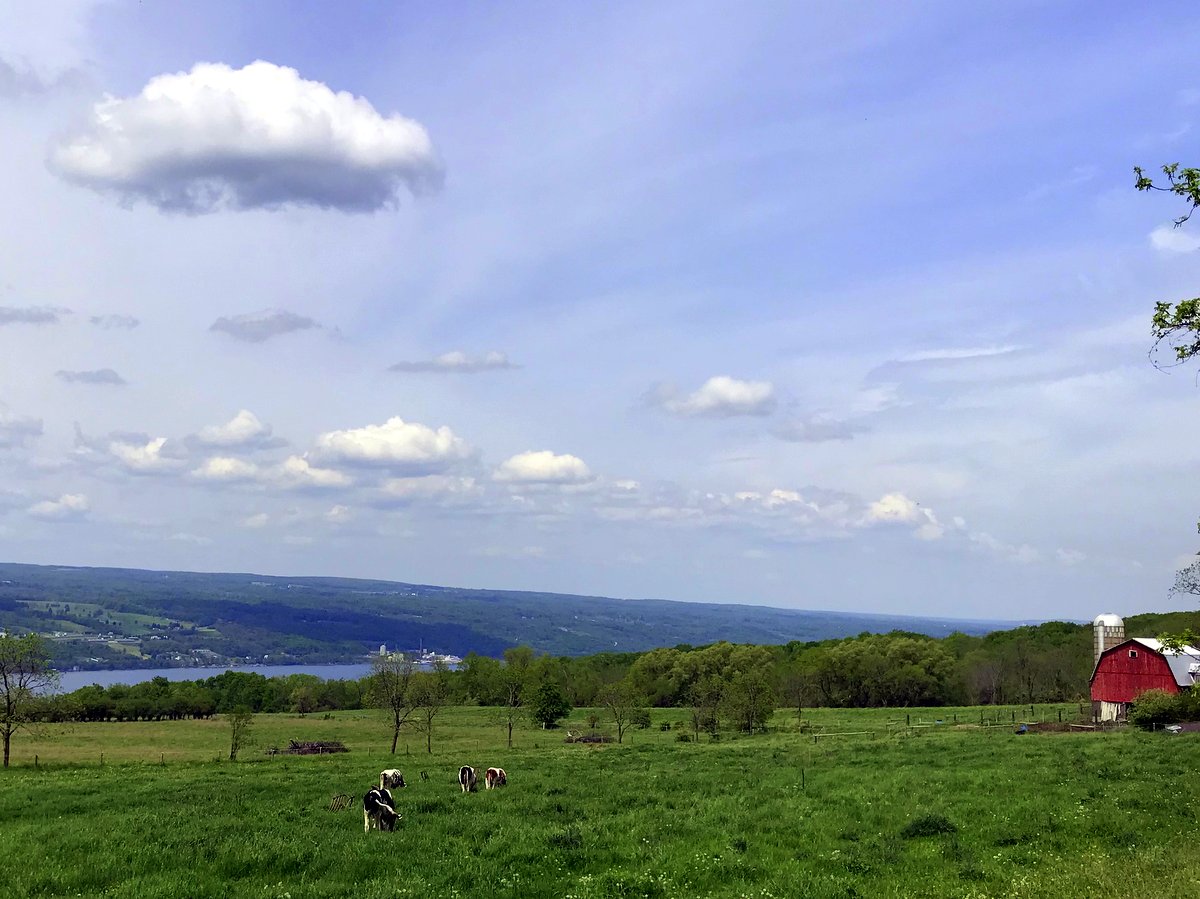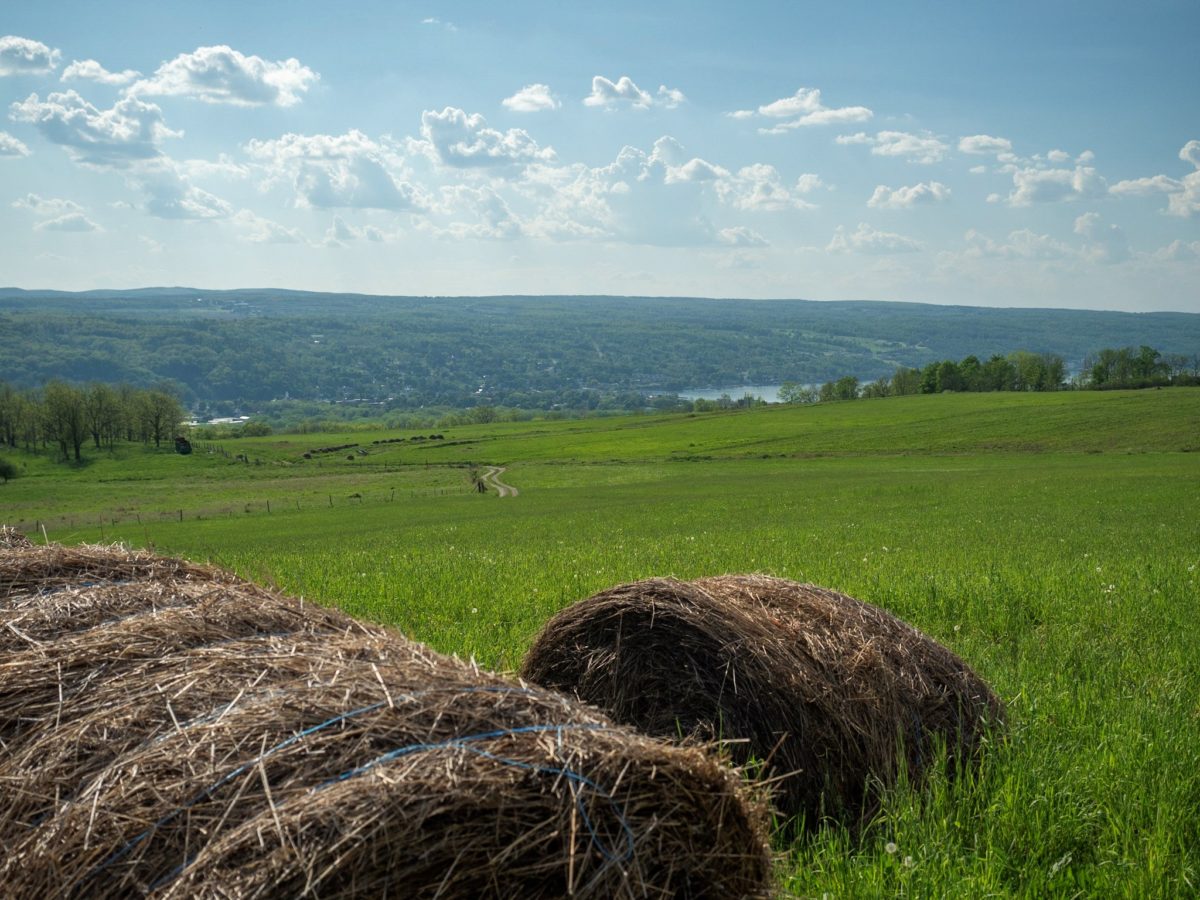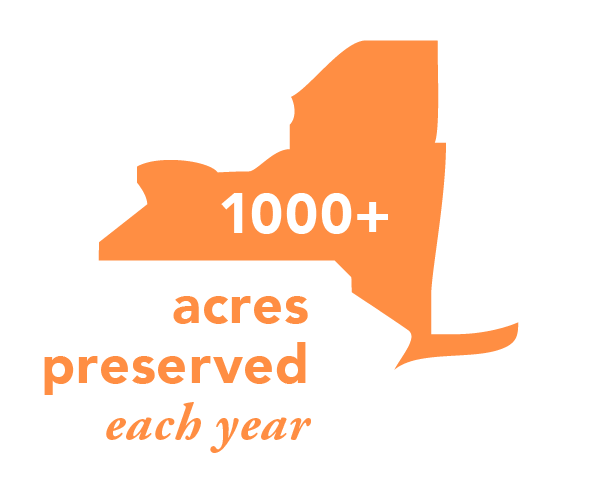The Land Trust permanently protected 518 acres of pastures, woodlands, and crop fields at Barber Farm, a dairy and beef cattle operation located off County Route 8 in the towns of Hector and Montour, Schuyler County.
Owned by Dave Barber, the farm includes panoramic vistas of Seneca Lake and the village of Watkins Glen, and can be seen from the gorge trail at Watkins Glen State Park.
The Land Trust completed two conservation easement agreements on the farm property, permanently protecting two non-contiguous parcels. Both easements will add to the protection of Seneca Lake’s water quality by prohibiting development in environmentally-sensitive areas. Forested hillsides on the property contain multiple tributaries to the lake which first enter the adjacent Catharine Creek Marsh Wildlife Management Area.
The farm, which has been in the Barber family for four generations, is located in an area of increasing development pressure. Dave is committed to protecting the property’s rural character and natural resources, and has made significant improvements to the farm’s drainage and fencing systems. The operation is home to 50 dairy cows, 30 beef cattle, and pastures for hay and corn.
Funds for the project came from the state’s Farmland Protection Implementation Grants Program (FPIG), administered by the New York State Department of Agriculture and Markets.
“We are grateful for the opportunity to conserve this farm, which defines a scenic vista that is enjoyed by thousands of visitors to the region each year,” said Land Trust Executive Director Andrew Zepp. “Protection of this land will also ensure the continuation of its agricultural tradition while protecting valuable wildlife habitat and buffer areas that are important for maintaining water quality in nearby Seneca Lake.”
Conservation easements are voluntary legal agreements that permanently limit future land use in order to protect the land’s conservation values. Lands subject to conservation easements remain in private ownership, on local tax rolls, and available for traditional uses such as farming and hunting.



